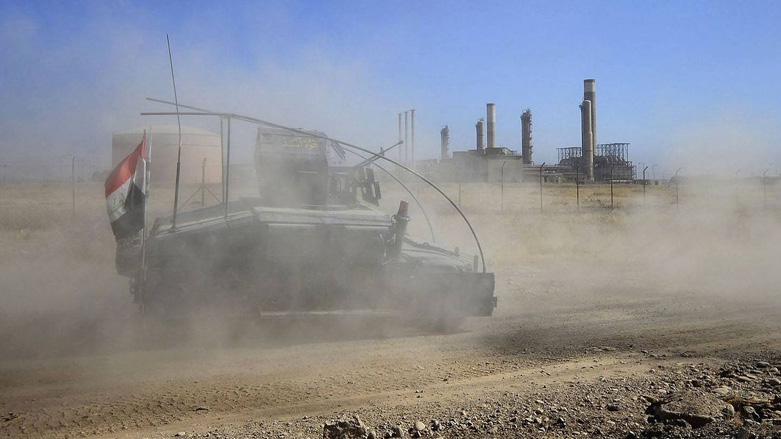KRG criticizes lack of ‘UN role’ in normalizing situation in disputed areas

ERBIL (Kurdistan 24) – The United Nations Assistance Mission for Iraq (UNAMI) “must play a more active role” between Erbil and Baghdad to normalize the situation in the disputed territories, a Kurdish official said on Wednesday.
Dindar Zebari, Coordinator for International Advocacy of the Kurdistan Regional Government (KRG), said in a statement Kurdistan 24 received that UNAMI should back the normalization of disputed areas to bring back “stability, joint security, and [provide] services” because the organization “is an important international body in monitoring the process of bringing political stability to the country.”
At a UN Security Council session dedicated to Iraq on Feb. 13, Jeanine Hennis-Plasschaert, Special Representative of the Secretary-General for Iraq and Head of UNAMI, spoke about the situation inside the country.
She discussed the current political and humanitarian situation in Iraq, in general, but did not mention details about the disputed territories, namely the oil-rich province of Kirkuk.
According to Zebari, the UN had previously highlighted Erbil and Baghdad’s role in normalizing the situation in disputed areas, specifically, in December 2007 when the deadline for Article 140 of the Iraqi Constitution was extended. Article 140 is meant to determine the fate of the disputed territories in a referendum where people can freely decide whether they want to be part of Iraq or the autonomous Kurdistan Region.
The KRG official called on UNAMI to push the federal government to implement the constitutional article. The current situation in Kirkuk, its security, and coexistence are important, Zebari stated, adding the UNAMI should have discussed these issues at the Security Council meeting.
“Generally, the Special Representative of UNAMI is doing very little in this regard,” he said.
During the attack and military takeover of Kirkuk by Iraqi forces and Shia militias on Oct. 16, 2017, “UNAMI Special Representative formed a committee to investigate the incidents, but after a year-and-a-half, the results of this investigation are unknown,” the Kurdish official noted.
“So far, UNAMI did not play an active role in bringing trust and political stability back to the city [Kirkuk].”
He stated that Hennis-Plasschaert mentioned the return of displaced persons to their hometowns in the disputed regions in her speech, but did not provide the reasons.
The reason displaced persons, “mostly religious minorities, are not returning to their homes is due to the presence of a huge number of Hashd al-Shaabi militants and other militia groups in the area that puts their [displaced people] lives at risk,” Zebari said.
“It is also them [militias] who are preventing government and public staff to return to their work.”
The Kurdish official stressed that the UNAMI Special Representative must “keep balance in their assessments” about the real situation in the Kurdistan Region and the obstacles the Kurdish region faces in helping displaced persons and refugees. This includes providing services, maintaining security in the disputed areas, and rebuilding those areas, so that IDPs can return to their homes.
Kirkuk is an ethnically diverse province which the KRG and the Federal Government of Iraq both claim. It consists of Turkmens, Arabs, and Christians with a Kurdish majority.
Over the past year, the province has witnessed an increase in attacks with Islamic State sleeper cells repeatedly carrying out insurgency attacks, ambushes, and kidnappings in the area.
Editing by Karzan Sulaivany
